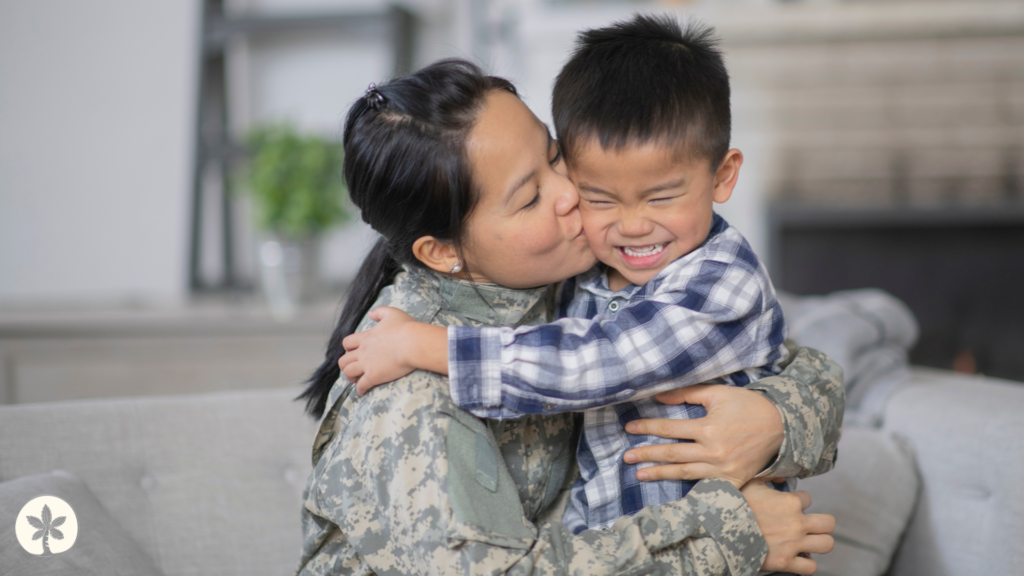Healing from a Borderline Mother – Eldest Daughter Support
Healing from a Borderline Mother | Help for Eldest Daughters Are you one of those eldest daughters—always the “strong one,” the helper, the overachiever—now secretly anxious, exhausted, and unsure who you are without the caretaking role? If you’re an eldest daughter healing from a borderline mother, you’re not alone. In South Texas—especially here in the Rio Grande Valley (Brownsville, Harlingen, McAllen)—we see a lot of women carrying this exact story. Smart. Capable. Self-sufficient. But under the surface? Burned out. Constantly anxious. Always doing and never being. You probably became the “adult in the room” before you could spell the word. In this blog, we’re diving deep into one of the root causes of this dynamic: being raised by a mother with Borderline Personality Disorder (BPD)—and how that shapes eldest daughters in particular. We’ll look at Dr. Christine Ann Lawson’s four types of borderline mothers, what research says about their impact, and how this upbringing can create high-functioning, people-pleasing women who put themselves last. If you’re seeking healing from childhood trauma, high-functioning anxiety, or eldest daughter syndrome, this is for you. First, What Is a Borderline Mother? BPD is a complex mental health condition marked by emotional instability, intense relationships, fear of abandonment, and sometimes impulsive or aggressive behavior. Mothers with BPD may love fiercely but also lash out suddenly. They’re often inconsistent, enmeshed, or emotionally unpredictable—which creates serious attachment wounds for their children. Dr. Christine Ann Lawson, in her groundbreaking book Understanding the Borderline Mother, breaks BPD mothers into four archetypes: the Waif, the Hermit, the Queen, and the Witch. If you’re nodding as you read, just wait. It gets very specific. The Four Types of Borderline Mothers (Lawson’s Framework) Many eldest daughters healing from a borderline mother recognize traits from more than one of these types. 1. The Waif – “I need you, but don’t actually help me.” The Waif mother presents as helpless, victimized, and constantly overwhelmed. She draws people in with her suffering but often rejects help or sees offers of support as criticism. As her child, you may have been the little fixer—always trying to make her feel better, only to feel dismissed or like it was never enough. Cue: guilt, emotional exhaustion, and the belief that love = self-sacrifice. If your mom was a Waif, you likely learned that your feelings didn’t matter. What mattered was protecting her, managing her sadness, and staying small so she didn’t crumble. 2. The Hermit – “The world is dangerous. Don’t trust anyone.” The Hermit is anxious, fearful, and hyper-controlling in subtle ways. She might have been obsessively clean, rigid, or distrustful of everyone. She may have discouraged friendships, privacy, or exploration out of her own fear. If your mom was a Hermit, you probably became hypervigilant. You learned that mistakes weren’t safe, the outside world couldn’t be trusted, and failure = catastrophe. Perfectionism was survival. You may still feel like someone’s watching you with a clipboard, waiting for you to mess up. 3. The Queen – “You exist to make me look good.” The Queen mom demands attention, praise, and loyalty—and punishes you when she doesn’t get it. She may have been charismatic in public and cold or cutting in private. Her children are extensions of her image, not individuals. If your mom was a Queen, you may have felt like nothing was ever enough—unless it made her look good. Her needs were center stage, and your job was to keep her calm, proud, and admired. Boundaries? Not a thing. You probably learned to shape-shift to avoid rejection or rage. 4. The Witch – “You’ll pay for crossing me.” This is the most terrifying and volatile version. The Witch lashes out with cruelty, control, and sometimes violence. She may have used fear, humiliation, or emotional blackmail to stay in control. Nothing you did was ever safe. Praise was rare. Criticism came like a wrecking ball. If your mom was a Witch, you likely lived on edge, never knowing what would set her off. As an adult, that shows up as anxiety, complex trauma, difficulty trusting anyone, and that deep, secret belief that love will always hurt. Important note: Many borderline mothers don’t stay in just one category. They shift depending on stress, relationships, or life stages. That inconsistency is part of what makes the experience so disorienting and damaging. What the Research Tells Us This isn’t just anecdotal—there’s real science behind how these parenting dynamics impact kids: Children of BPD mothers often experience emotional invalidation, disorganized attachment, and chronic stress. Research shows these moms are less attuned to their child’s needs and more intrusive, dismissive, or overinvolved (Petfield et al., 2015). The family system is often marked by low cohesion, high conflict, and role reversal (where the child takes care of the parent). By adolescence, these children are more likely to show signs of depression, anxiety, self-harm, and emotional dysregulation. Basically: when your caregiver is unstable, you don’t get to be a kid. You become the emotional anchor in a sinking ship. Eldest Daughter Syndrome Is Real (And You’re Probably Living It) For eldest daughters healing from a borderline mother, this syndrome isn’t just theory—it’s lived experience. The eldest daughter—especially in Latinx and South Texas households—is often expected to step up. Add a mom with BPD to the mix? You’re not just the big sister. You’re the emotional support system. The babysitter. The problem-solver. The adult in the room. This is parentification: when a child is expected to take care of their parent’s emotional or practical needs. And eldest daughters get hit the hardest. Signs You Were a Parentified Eldest Daughter: You were “mature for your age” because you had to be You handled household tasks or took care of siblings while your mom checked out You had zero tolerance for failure, mistakes, or “being a burden” You’ve always been the friend everyone leans on—but you don’t know how to lean back You feel guilty for resting or doing something just for yourself It’s not just stress—it’s
Healing from a Borderline Mother – Eldest Daughter Support Read More »


